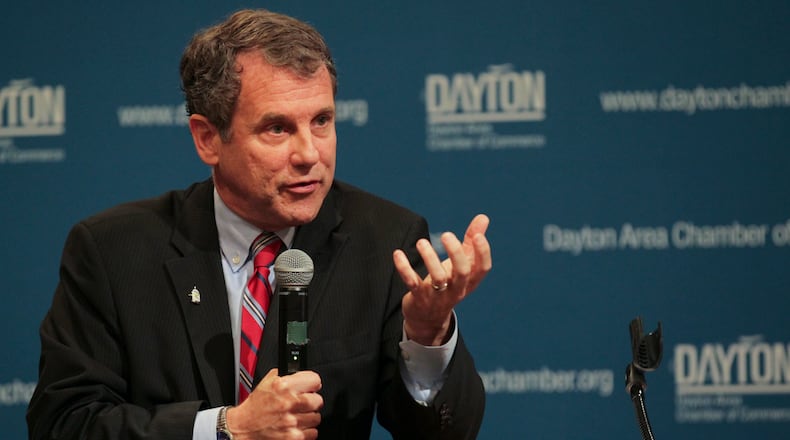Brown announced Wednesday plans to co-sponsor legislation that requires companies with 15 or more employees to provide as many as seven paid sick days per year. “When workers without paid sick leave or paid sick days don’t have that option (of staying home), many, many more of us are exposed,” he said.
But critics said paid sick leave would be burdensome to businesses, and government should stop interfering with the private-sector.
About 40 percent of private-sector U.S. workers, and more than 80 percent of low-wage workers, do not have paid sick days, according to the National Partnership for Women & Families, an organization based in Washington, D.C., that advocates for paid sick leave.
Adults without paid sick days are 1.5 times more likely than adults with sick leave to report going to work with a contagious illness, the partnership said.
Doctors, nurses and pharmacists recommend that people who have the flu stay home to avoid spreading the illness, Brown said.
But he said too many workers cannot afford to call off when they are sick because they rely on those wages.
Brown said his legislation would promote public health by allowing workers to earn one hour of paid sick leave for every 30 hours they work. The bill exempts employers with fewer than 15 employees from providing sick leave.
“Healthy workers are more productive workers,” Brown said. “Doing the right thing is right for business, but not all employers recognize this.”
Some business owners applaud Brown’s efforts.
Heather Rocco-Geisler, CEO and co-owner of Challenger Aviation Products in Dayton, said her business already allows workers to earn paid sick leave, because her employees are happier, healthier and more productive. “I consider every employee I have to be family, and just like how I would want my family members treated, I want my employees to be treated the same way,” she said.
But some business groups said they are concerned the proposed bill will result in more unwanted and harmful government intervention.
“Once again it is government getting in between the employer and doing what that employer thinks is best for his or her employees, and basically running business from Washington, D.C.,” said Tony Seegers, the Ohio Chamber of Commerce’s director of labor and human resources policy.
Seegers said businesses should provide sick leave, but owners should be allowed to decide whether to pay workers for time off for illness.
“Nobody is against sick leave,” he said. “But those small businesses that are a backbone of our economy really can’t withstand provisions that would threaten pay, benefits and jobs.”
In 2008, some Ohio lawmakers unsuccessfully tried to get an issue on the statewide ballot that sought to make businesses provide paid sick leave. At the time, the National Federation of Independent Business estimated the bill would have cost 75,000 Ohioans their jobs and placed a $1.17 billion burden on employers in the state.
About the Author

